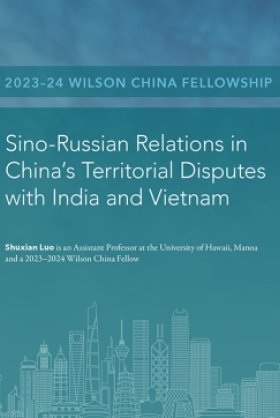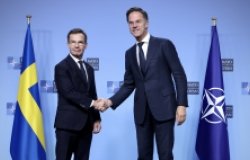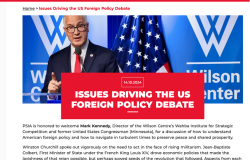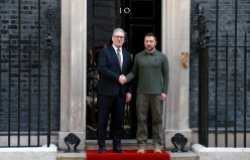The Cienfuegos Case is now in Mexico’s Court

Wilson Center
The US arrest and release to Mexico of retired Mexican Defense Secretary Salvador Cienfuegos has set up a high-profile test for Mexico’s justice system and underscores the challenges to deeper and more effective bilateral cooperation against drug smuggling.
The Cienfuegos case is sapping trust on both sides of the border. As Defense Secretary, Cienfuegos oversaw very close US-Mexico military-to-military cooperation from 2012-14. However, he was charged by U.S. authorities with aiding a lesser-known Mexican drug smuggling group from 2015-17. The US Attorney General dropped the charges and turned the evidence over to his Mexican counterpart in the interest of “partnership” and a “united front” against criminality, in response to Mexican government complaints.
Following the US agreement to drop charges, Mexico’s Foreign Minister Marcelo Ebrard promised an investigation that meets the “highest standards of effectiveness and honesty,” and President Lopez Obrador said that his government is up to the task. Ebrard also made a more controversial statement: “Whoever is culpable according to our laws will be tried, judged and if applicable, sentenced in Mexico, and not in other countries,” and he said the US has now agreed to this. This would be a break with past U.S. practice and very surprising given Mexico’s poor record on investigations and convictions and its poor global ranking for control of corruption.
Many questions still swirl around the General’s mid-October arrest in Los Angeles and the factors that led the Trump administration to release him to Mexico in mid-November.
Mexican authorities were angered that the US did not give them a heads up about the investigation and threatened to curtail bilateral cooperation. US prosecutors and investigators are no doubt asking why a “strong” case against Cienfuegos for aiding a drug trafficking organization was dropped and ceded to Mexico, in the name of preserving bilateral anti-crime cooperation. Experts speculate about the tradeoffs, threats, and promises that led U.S. Attorney General Barr to drop U.S. charges.
Media coverage examines what domestic pressures might have been brought on Mexico’s President Andres Manuel Lopez Obrador (AMLO) by Cienfuegos’s former military colleagues to free him. Mexico’s President relies heavily on the army for assuring public security, controlling migration and building infrastructure projects. AMLO needs the army’s continued support, analysts argue. Some wonder whether Cienfuegos had damaging information that could have become known to the US had he stayed in US custody.
The chances for a successful Mexican prosecution of General Cienfuegos are unclear, especially as U.S. evidence against him includes cell phone data collected without approval of a Mexican judge, which is quite possibly not admissible in Mexico’s courts.
While commentary in Mexico has focused on questions of sovereignty, it is imperative to keep in mind that drug trafficking groups are directly and indirectly responsible for tens of thousands of deaths on both sides of the border, via violence in Mexico and overdoses , deaths, and suffering in the U.S. caused by the fentanyl, heroin and meth smuggled from Mexico.
FY2020 was marked by substantial increases in hard drug seizures at the US-Mexican border. US drug sales provide many billions of dollars in profits to Mexican criminal groups, which are used to buy powerful U.S. arms and to fund corruption. Mexico set a record of more than 34,000 homicides in 2019, and the economic cost is estimated as the equivalent of 21% of Mexico’s GDP.
If the case against Cienfuegos is mishandled and falters, the spotlight will be on flaws in Mexico’s justice system and the government’s claims that it can effectively take on high level corruption cases.
Importantly, a poorly handled case will further erode the confidence of U.S. law enforcement and justice officials in their Mexican partners. It would likely also undermine the morale of law-abiding Mexican officials committed to stopping violent criminal groups.
Building mutual US-Mexican trust had been a persistent challenge in fighting cross-border crime Over the years there have frequently been unverified reports of criminals buying off senior security officials. The US has worked to manage this challenge by developing systems for vetting and monitoring those involved in sensitive cooperation and by providing assistance via the Merida program to set up internal affairs units and other systems to regularly monitor for evidence of corruption. Despite many good and trustworthy Mexican partners, the systems in place were still flawed and needed reinforcement, given the coercion and money available to criminal groups.
The general should be considered innocent until proven guilty, and whatever transpired, he deserves fair treatment under the law. However, the seriousness of Mexico’s investigation and handling of his case will send important signals about Mexico’s willingness to investigate drug-trafficking ties among senior officials and the capacity of its justice system to deal effectively with corruption.
From a US-Mexico perspective, Mexico’s management of the case will have a big impact on whether Mexico and the United States will be able to improve their collaboration to combat the drug trafficking groups.
Despite the Cienfuegos case, or the recent US charges brought against former Mexican Security Minister Garcia Luna and two deputies, neither government can escape the responsibility to protect its citizen by cooperating with its neighbor against deadly cross border crime.
As the Cienfuegos investigation proceeds in Mexico, the U.S. and Mexican governments should undertake a fresh, no fault review of anti-crime cooperation and put in place better mechanisms that can help check, monitor and prevent corruption and influence by criminals on officials from either country.
The worst outcome would be declining trust and less effective work against the cross-border drug and arms trade. Both governments owe it to their citizens focus on ways to build mutual trust and achieve better results against criminal trafficking organizations.
This article was originally published in Spanish on Infobae....
About the Author

Earl Anthony Wayne
Former Career Ambassador to Afghanistan, Argentina, and Mexico; Distinguished Diplomat in Residence, School of International Service, American University

Mexico Institute
The Mexico Institute seeks to improve understanding, communication, and cooperation between Mexico and the United States by promoting original research, encouraging public discussion, and proposing policy options for enhancing the bilateral relationship. A binational Advisory Board, chaired by Luis Téllez and Earl Anthony Wayne, oversees the work of the Mexico Institute. Read more













